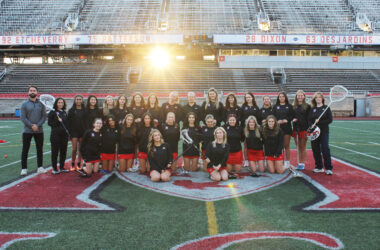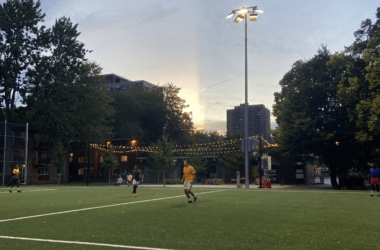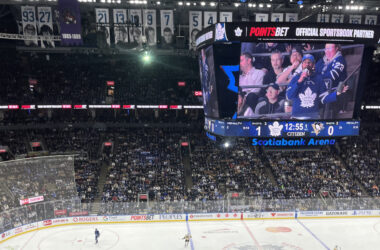Staring up at the scoreboard in McGill’s Love Competition Hall, the visiting team watched the seconds tick down to zero before they began to celebrate their 74-68 exhibition basketball win over the Redmen volleyball team last Tuesday. The visitors are used to keeping an eye on the clock, though, because the sound of the buzzer isn’t very helpful. Coached by former McGill basketball star Victor Mansure, the Association Sportive des Sourds du Quebec basketball squad is out to prove that it can not only play with – but win against – just about anyone.
Organized in 1968, the ASSQ has played an important role in providing members of the province’s deaf community with amateur athletic opportunities, ranging from basketball and cycling to flag-football and swimming. The stated goals of the organization are to promote sports and leisure activities among deaf children and adolescents, and in doing so, the ASSQ has also helped bridge the gap between the hearing and non-hearing community in Montreal. The task of coaching a deaf basketball team has allowed Mansure to develop new skills and pursue new friendships, but has also presented him with a variety of challenges.
“The way that we use our words and our vocabulary influence the way we think,” he said. “So the words [the players] use influence the way they think, and [learning their words] has been quite an experience. I came into the job without any sign language, but I learned my ABCs, and now we can have a conversation.”
On the court, the sign language used by Mansure’s team is similar to the gestures used by all basketball players. Fingers point to the shot clock, fists call for screens, and arms wave to signal an open man. Off the court, however, signing is infinitely more complex, even among members of the team.
“They not only speak a different language – sign language – but there’s also the fact that half my team signs in French and half signs in English,” Mansure said. “One of the kids is from Mongolia and got here two months ago. He signs in Mongolian, so you can imagine that’s been a bit of a learning experience for me.”
The ASSQ is an affiliate of the Canadian Deaf Sports Association, which hosts tournaments and national team tryouts for different sports throughout the year. Team Canada participates in the World Championships, the Pan-American Games, and the International Olympic Committee-sanctioned Deaflympics, which take place every four years.
While deaf athletes participating in mainstream professional sports are a rarity, overcoming hearing disabilities is not without precedent. Lance Allred, a seven-foot center who led Team USA to a second-place finish at the 2002 World Deaf Basketball Championships, became the first legally deaf athlete to play in the NBA in 2008. Mansure believes many of his players would have the talent to play at a high level within the hearing community if given the chance.
“I have a kid who is six-foot-five and 15 years old, and he can really play,” he said. “They’re all starting to pick it up. There’s a deaf world tournament in June, and we’re probably going to have three or four guys from Quebec on the national team. We’ll see where that takes them. The level of basketball is getting higher and higher, and I think [my players could] definitely play CEGEP right now. But it’s very hard for a deaf person to go into the hearing community.”
Whatever limitations they face on the court, Montreal’s deaf basketball team is improving rapidly, thanks in part to the support of the ASSQ and CDSA in facilitating practices and games. Mansure, for one, is pleased with Canada’s commitment to developing athletes and promoting sports within the deaf community, and is optimistic about the future.
“We play in the Montreal senior basketball league … we’ve been beaten a few times, but I see this group in a few years time competing,” Mansure said. “I’m very positive. Right now we’re still a step behind, but who knows where we’ll be in two or three years. These kids have a lot of chances; they can compete in the deaf community against anyone, and hopefully, they’ll [compete] in the mainstream community pretty soon.”








